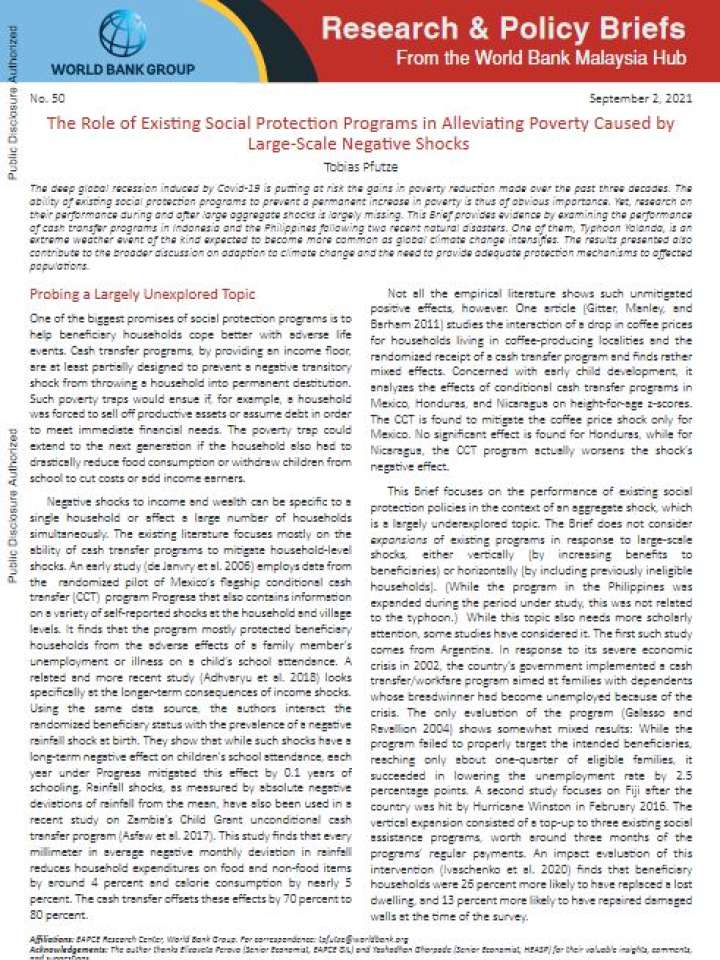The role of existing social protection programs in alleviating poverty caused by large-scale negative shocks
This brief provides evidence by examining the performance of cash transfer programs in Indonesia and the Philippines following two recent disasters. One of them, Typhoon Yolanda, is an extreme weather event of the kind expected to become more common as global climate change intensifies. The results presented also contribute to the broader discussion on adaption to climate change and the need to provide adequate protection mechanisms to affected populations.
The two empirical case studies on Typhoon Yolanda in 2013 and the Sulawesi earthquake in 2018 provide several insights. Consumption and poverty are of course intrinsically linked, with the latter being an indicator of the former falling below a pre-established threshold. A second result that is consistent across both cases is the larger effect on non-food consumption relative to food consumption. If social protection programs do their job and effectively protect against that shock, the effect would be expected to show up mostly on the non-food side. Taken together, these results strongly suggest that the cash transfer programs examined do provide some protection against aggregate shocks to income.
Explore further
